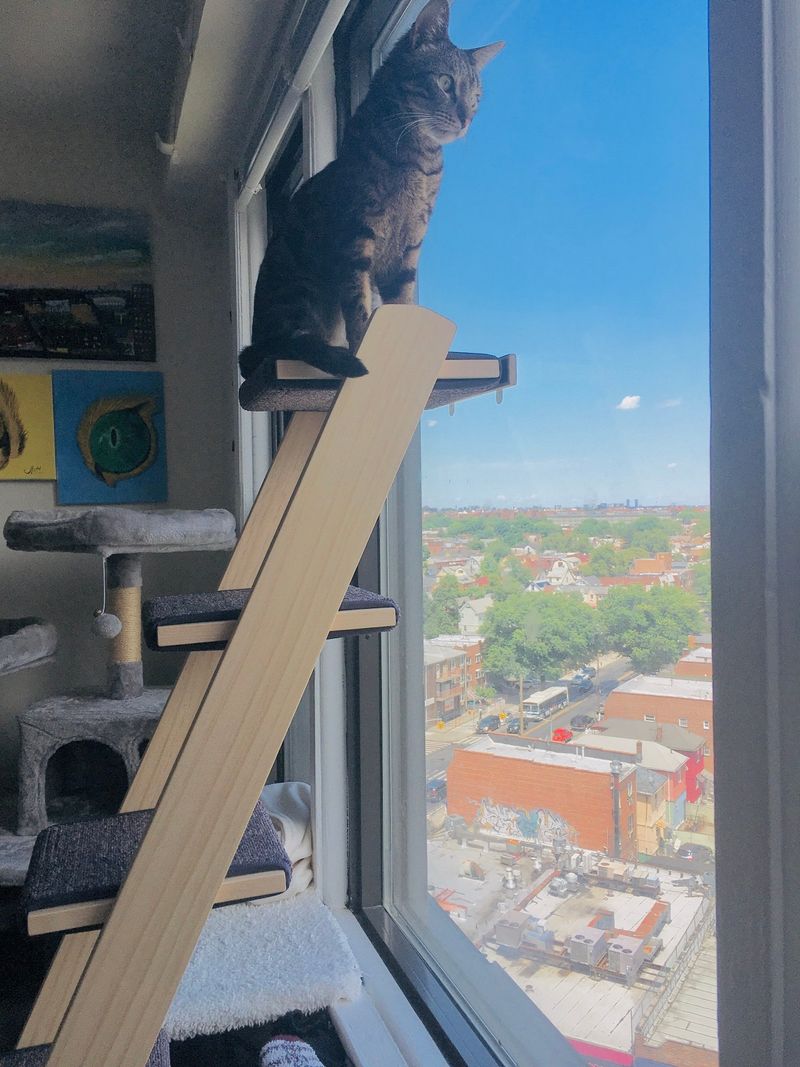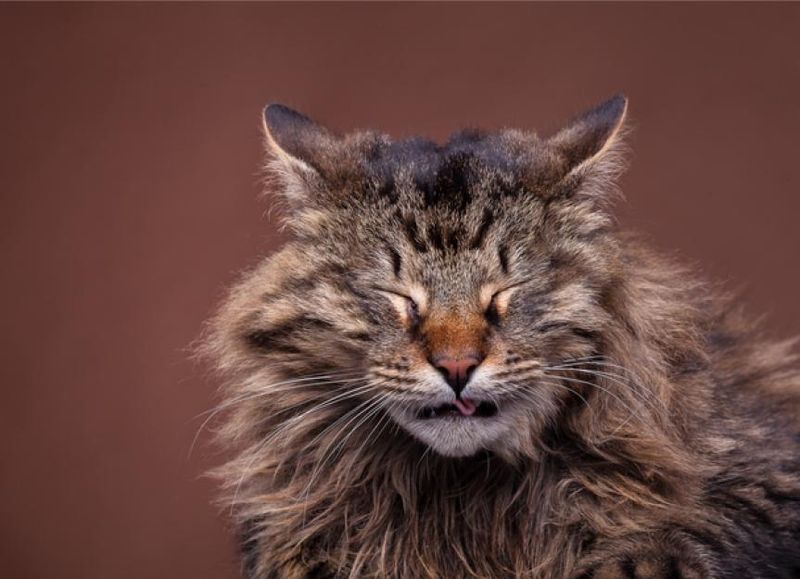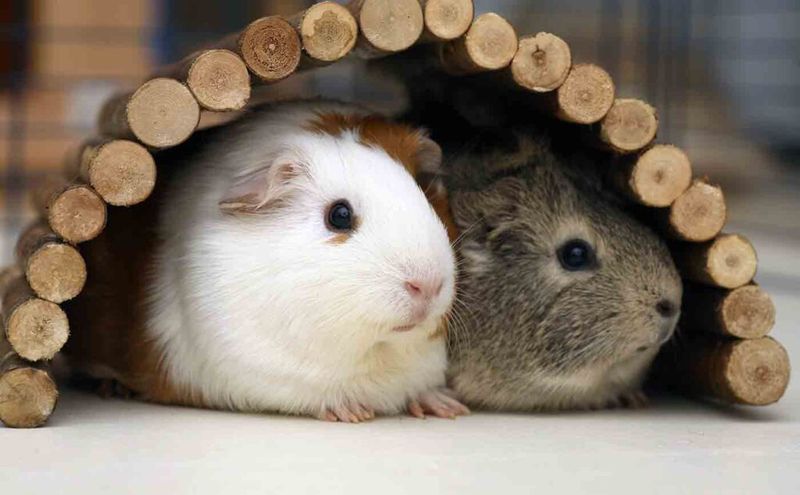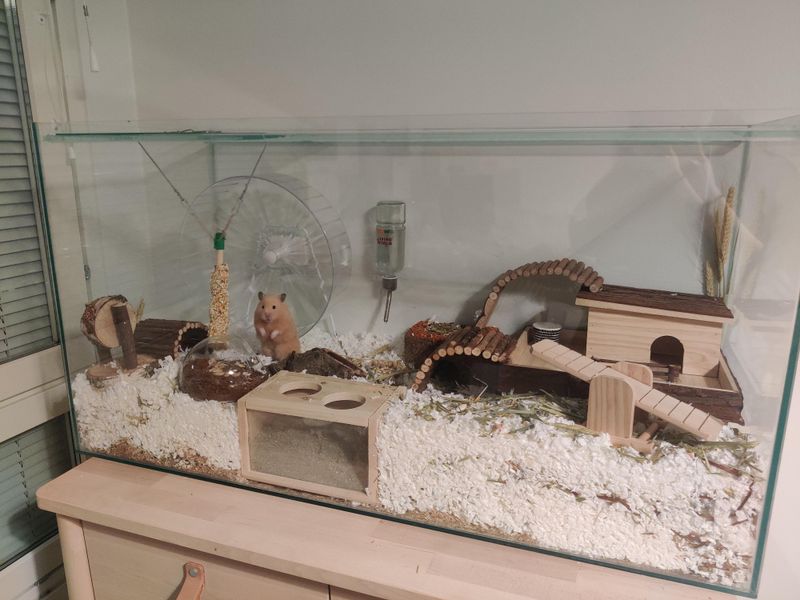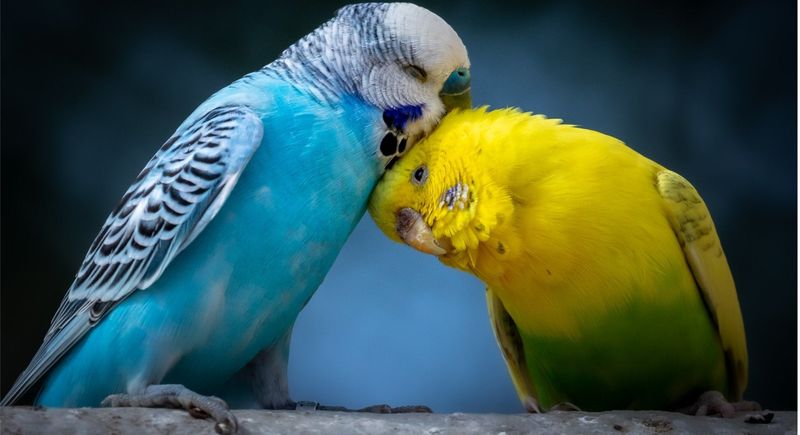📖 Table of Content:
- 1. Cats Require Patience
- 2. Cats Are Not Low-Maintenance
- 3. Cats Can Be Aloof
- 4. Cats Need Space
- 5. Cats Have Special Dietary Needs
- 6. Cats Can Be Nocturnal
- 7. Cats May Scratch Furniture
- 8. Cats Have Litter Box Challenges
- 9. Cats Can Trigger Allergies
- 10. Cats Require Health Monitoring
- 11. Dogs for Loyal Companionship
- 12. Rabbits for Gentle Socialization
- 13. Guinea Pigs for Easy Care
- 14. Fish for Low-Commitment Enjoyment
- 15. Hamsters for Playful Interaction
- 16. Budgies for Vocal Companionship
Choosing the right pet for first-time owners can be a daunting task. While cats have a reputation for independence and charm, they might not suit everyone’s lifestyle, especially for those new to pet ownership. This blog post explores ten reasons why cats might not be the ideal choice for beginners, followed by six alternative pets that may better fit novice pet owners. Each section provides engaging insights and vivid descriptions to help you make an informed decision.
1. Cats Require Patience
Cats are known for their independent nature, often requiring a substantial amount of patience from their owners. Unlike dogs, they may not respond immediately to your calls or commands. It’s not uncommon for a cat to hide for hours, especially in a new environment. This can be frustrating for first-time owners who expect instant companionship. Understanding a cat’s behavior and allowing them to come to you on their terms is key. The bond formed with patience is rewarding but requires time. For someone new to pets, this might be a challenging start.
2. Cats Are Not Low-Maintenance
Many first-time pet owners mistakenly believe that cats are low-maintenance. However, maintaining a cat can be quite demanding. Regular grooming, cleaning litter boxes, and ensuring they have enough stimulation can be time-consuming. Cats require specific diets and may develop health issues if not properly cared for. For someone expecting an easy pet, the reality can be overwhelming. Cats need daily attention and care, making them a significant commitment. Understanding these needs helps prepare potential owners, but for those unprepared, it might be too much to handle.
3. Cats Can Be Aloof
Cats are often seen as aloof creatures, preferring to observe from a distance rather than engage actively. This can be a letdown for first-time owners seeking constant interaction. Unlike dogs, cats may not always greet you at the door or follow you around the house. Their independent nature means they choose when to be affectionate, which might not align with your expectations. This aloofness can be perceived as indifference, leading some to feel disconnected. For those craving a pet that offers constant companionship, cats might not fulfill that desire.
4. Cats Need Space
Cats thrive in environments where they have plenty of space to explore and roam. Small living quarters can lead to restlessness and behavioral issues. First-time owners who live in compact apartments might find it challenging to provide the necessary space. Cats enjoy vertical spaces like shelves and cat trees, which add to the spatial requirements. Without adequate space, they may become stressed and exhibit negative behaviors such as scratching furniture or excessive meowing. Providing a stimulating environment is crucial for a cat’s well-being.
5. Cats Have Special Dietary Needs
Feeding a cat involves more than just placing food in a bowl. Cats have specific dietary requirements that must be met to maintain their health. Understanding the nutritional needs and selecting the right food can be daunting for first-time owners. Cats are obligate carnivores, needing a diet rich in protein and certain amino acids. Regularly scheduled feeding times and monitoring their food intake are essential. Ensuring a balanced diet is crucial, and mistakes can lead to health issues. This level of care might be unexpected for someone new to pet ownership.
6. Cats Can Be Nocturnal
Cats are often nocturnal creatures, coming alive at night when their owners are trying to sleep. This nighttime activity can include playing, exploring, and even vocalizing, which can disturb your rest. First-time owners might struggle with adapting to a pet that doesn’t follow their sleep schedule. Providing nighttime entertainment, such as toys and interactive feeders, can help manage their nocturnal energy. Understanding this behavior is part of adjusting to life with a cat. It’s a unique challenge that might not be suitable for everyone, particularly light sleepers.
7. Cats May Scratch Furniture
Scratching is a natural behavior for cats, but it can be a source of frustration for owners. Cats scratch to mark their territory, sharpen their claws, and stretch their bodies. This often leads to damaged furniture if not properly managed. First-time pet owners may not anticipate this behavior, leading to conflicts. Providing scratching posts and regularly trimming their claws can minimize the damage. Training a cat to use designated scratching areas requires patience and consistency. For some, the potential destruction of furniture is a significant drawback of cat ownership.
8. Cats Have Litter Box Challenges
Litter box maintenance is an essential part of cat ownership, yet it can be off-putting for first-time pet owners. Regular cleaning is necessary to prevent odors and maintain a clean environment. Some cats are particular about cleanliness and may refuse to use a dirty litter box. Selecting the right type of litter and box is crucial, as is finding the best location within your home. Mishaps and accidents can happen, requiring quick action to maintain hygiene. For new owners, this aspect of cat care might be more demanding than anticipated.
9. Cats Can Trigger Allergies
Cat allergies are common and can be a significant issue for potential pet owners. Even those who haven’t experienced allergies in the past may develop sensitivity after prolonged exposure to cats. Allergens are present in their dander, saliva, and fur, causing sneezing, itching, and respiratory issues. First-time owners may not realize they or their family members are allergic until it’s too late. Managing allergies requires regular cleaning, air purifiers, and sometimes medication. This added layer of complexity might deter those who are unprepared for the potential health implications.
10. Cats Require Health Monitoring
Monitoring a cat’s health is a responsibility that requires vigilance and knowledge. Regular vet check-ups, vaccinations, and being aware of any changes in behavior or appearance are crucial. Cats can sometimes hide symptoms of illness, making it difficult for inexperienced owners to detect problems early. Understanding common feline health issues and knowing when to seek veterinary advice is essential. This level of responsibility might be overwhelming for a first-time pet owner. Ensuring a cat’s well-being demands a proactive approach, which may require a steep learning curve.
11. Dogs for Loyal Companionship
With their unwavering loyalty and love, dogs are often considered man’s best friend. They offer constant companionship and thrive on interaction with their owners. For first-time pet owners, dogs, particularly breeds like Labrador Retrievers, provide the affection and engagement they seek. Their ability to bond deeply with humans makes them ideal for those looking for a loyal companion. Training and exercise are part of the responsibility, but the rewards include a loving and devoted pet. For many, dogs represent the perfect balance of challenge and companionship.
12. Rabbits for Gentle Socialization
Rabbits offer a unique combination of gentle company and playful interaction. Their soft fur and endearing antics make them favorites among pet owners. Rabbits can bond closely with humans, providing affectionate companionship without the demands of more active pets. First-time owners will appreciate their quiet nature and the joy of watching them explore. Rabbits require specific care, including a proper diet and space for exercise. Their gentle demeanor and manageable needs make them a suitable choice for those looking to start their pet-owning journey with a calm and charming companion.
13. Guinea Pigs for Easy Care
Guinea pigs are delightful pets known for their friendly and social nature. They thrive on interaction and enjoy being part of a family. For first-time pet owners, guinea pigs offer an easy-care option. Their diet is straightforward, and they require minimal grooming compared to other pets. Guinea pigs communicate with cheerful squeaks and can be trained to respond to their names. Their small size and gentle nature make them particularly appealing for families with children. As they form bonds with their owners, they bring joy and companionship without overwhelming responsibility.
14. Fish for Low-Commitment Enjoyment
Aquariums bring a sense of tranquility and beauty to any home. Fish offer a low-commitment pet option for first-time owners seeking relaxation. The soothing effect of watching fish swim can reduce stress and create a calming environment. Maintaining an aquarium involves regular cleaning and monitoring water quality, but the effort is minimal compared to other pets. With a variety of species to choose from, owners can personalize their aquarium to suit their preferences. Fish provide a visually stunning and peaceful addition to the home, ideal for those seeking a pet with minimal demands.
15. Hamsters for Playful Interaction
Hamsters are beloved for their playful and curious personalities. These small pets offer a delightful mix of activity and companionship. For first-time pet owners, hamsters provide an engaging experience with their antics and interactions. They are relatively easy to care for, requiring a balanced diet and a clean habitat. Hamsters enjoy exploring, and their cages can be customized with tunnels and toys to keep them entertained. Their nocturnal nature means they are active when most people are home, making them ideal for those who enjoy evening interactions. Their small size and big personality make them a fun addition to any household.
16. Budgies for Vocal Companionship
Budgies are known for their cheerful chirps and vibrant personalities. These small parrots offer vocal companionship and can even learn to mimic words. For first-time pet owners, budgies provide a lively and interactive experience. They enjoy socializing with humans and thrive in environments where they receive attention and stimulation. With their friendly nature and ability to entertain, budgies make excellent companions for those seeking an engaging pet. Their care involves maintaining a clean cage and providing a balanced diet. Budgies bring color and song into their owners’ lives, making them a delightful choice for novice pet owners.




